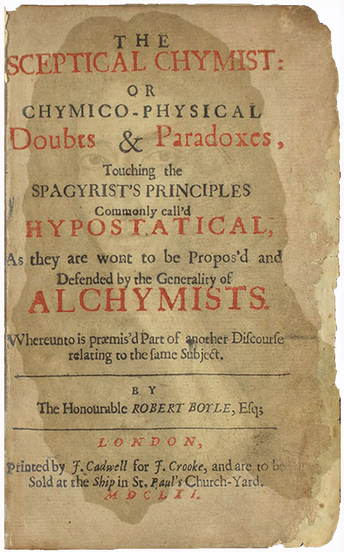Robert Boyle1627–1691
Boyle was a founder member of The Royal Society of London and a catalyst in its experimental activities. He not only devised the air-pump but advanced the experimental method in the study of chemistry generally. He also made some insightful observations on binocular and colour vision. Speculations on both topics stretched back to antiquity and his observations added to this legacy. For binocular vision, Boyle remarked on the behaviour of three individuals who had lost an eye by accident: they all made errors in depth perception, as was evident when they tried to pour liquid from a bottle into a glass. He also noted that in one of the cases the errors ceased after two years. At that time it was generally believed that vision with one eye was superior to that with two. Boyle described how he had “by an Experiment purposely made, several times found, that my Two Eyes Together see an Object in another Situation, than Either of them Apart would do”, although he did not give any details of what this experiment was. He could have been led to this experiment by the fact that one of his assistants had a marked squint but did not report any difficulties in depth perception. Boyle carried out experiments on the female silkworm moth in order to determine how its actions were influenced by ablation of its body parts: decapitation did not affect its mating response nor did it prevent egg laying. These were some early indications reflex actions that continued independently of other biological processes in the animal. Boyle is shown enclosed within the title page of his book arguing for the value of experiment over superstition.
